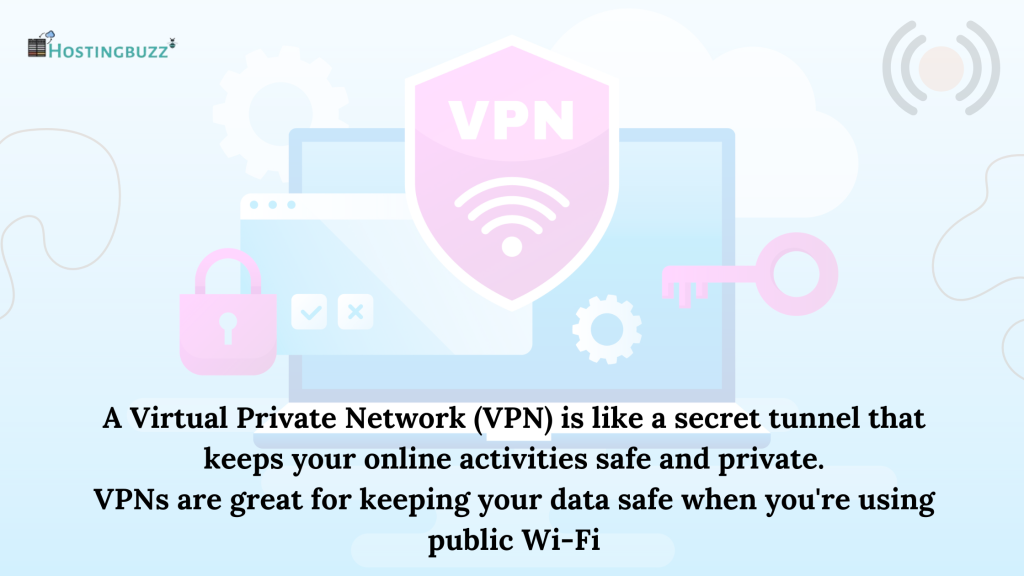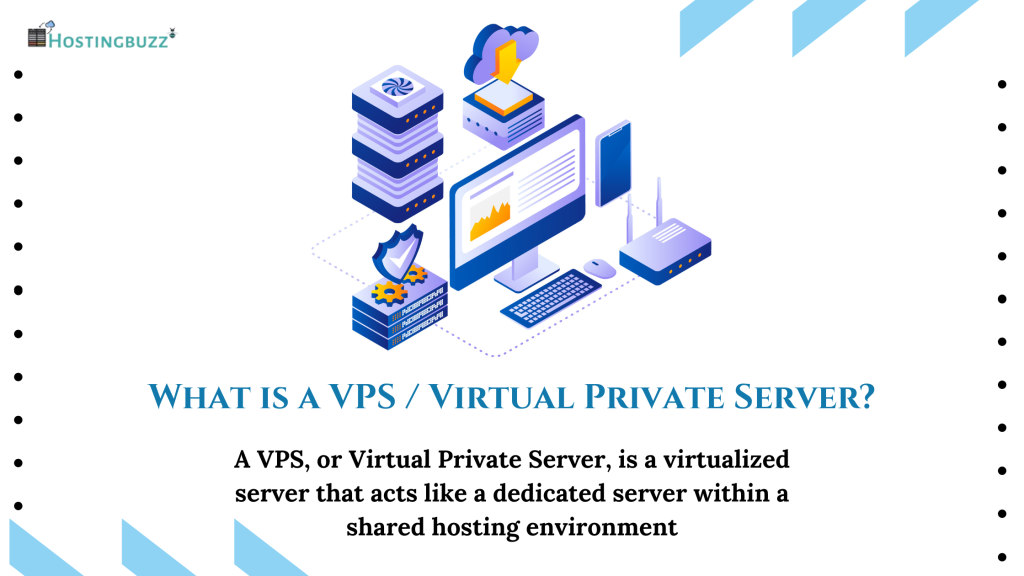-
May, Sat, 2024
What is the Difference between VPN and VPS Server?
Virtual Private Servers (VPS) and Virtual Private Networks (VPN) are crucial technologies in the digital realm, offering privacy and security benefits but differing in functionality. VPS is a virtualized server environment, while VPN provides users with dedicated resources and control.
A VPN, or Virtual Private Network, encrypts internet connections, ensuring privacy and anonymity by routing traffic through secure servers. This article elucidates the disparities between VPS and VPN, emphasizing the benefits of the best VPS server and strategies for securing a VPS server effectively.
What is a Virtual Private Network (VPN)?

A Virtual Private Network (VPN) is like a secret tunnel that keeps your online activities safe and private. It works by encrypting your internet connection and sending it through a special server, hiding your real location and making it hard for anyone to spy on you.
VPNs are great for keeping your data safe when you’re using public Wi-Fi, and they can also help you access websites and content that might be blocked in your country. For businesses, VPNs are essential for letting employees work securely from anywhere. Overall, VPNs are a must-have for anyone looking to keep their online activities secure and private
How Does a VPN Work?
A VPN is a secure tunnel that encrypts internet traffic and sends it through a secure server before reaching the desired website. It creates the illusion of browsing from a different location, protecting your data from hackers and other prying eyes.
Why Use a VPN?
Using a VPN, or Virtual Private Network, offers several important benefits:
- Privacy: A VPN encrypts your internet connection, making it difficult for anyone to spy on your online activities, including your internet service provider (ISP) and hackers.
- Security: VPNs add an extra layer of security to your internet connection, protecting your sensitive data from being intercepted by cybercriminals.
- Access Restricted Content: With a VPN, you can bypass geographical restrictions and access websites, streaming services, and content that may be blocked in your location.
- Safe Public Wi-Fi: When you connect to public Wi-Fi networks, such as those in coffee shops or airports, using a VPN ensures that your data remains secure and private.
- Remote Access: For businesses, VPNs allow employees to securely access company networks and resources from anywhere in the world.
Overall, a VPN is a valuable tool for ensuring your online privacy, security, and freedom while browsing the internet.
Why Should I Not Use a VPN?
While VPNs offer many benefits, there are some reasons why you might not want to use one:
- Speed: Using a VPN can sometimes slow down your internet connection, especially if you’re connecting to a server far away from your location
- Cost: Quality VPN services often require a subscription fee, which may not be feasible for everyone.
- Complexity: Setting up and using a VPN can be more complex than simply browsing the internet without one, which may not be suitable for everyone.
- Legal Concerns: In some countries, the use of VPNs is restricted or illegal, so it’s important to be aware of the laws in your area.
- Trust: Using a VPN requires trusting the VPN provider with your data, so it’s important to choose a reputable provider.
Overall, while VPNs offer many benefits, they may not be the right choice for everyone, depending on your needs and circumstances.
What is a VPS / Virtual Private Server?

A VPS, A Virtual Private Server is a virtualized server that functions as a dedicated server within a shared hosting environment. It offers the user greater control and customization options compared to shared hosting. With a VPS server, you get your own operating system, dedicated resources, and the ability to install software and applications of your choice.
This makes VPS servers ideal for businesses and individuals who require more control, security, and flexibility for their websites or applications.
How VPS Server Works?
A Virtual Private Server (VPS) divides a physical server into multiple virtual servers, providing users greater control and security. A Secure VPS Server safeguards data and resources from other users, enhancing security and performance.
Why Choose a VPS Server?
A VPS (Virtual Private Server) offers several advantages over other hosting options. With a VPS, you get your own dedicated resources and operating system, Hostingbuzz, a reputable hosting provider, offers a range of VPS hosting solutions, giving you more control and flexibility. Additionally, a Secure VPS Server ensures that your data and resources are protected from other users on the same physical server, providing enhanced security and peace of mind.
Functions: VPN vs VPS Server
Understanding the functions of VPNs and VPSs is crucial for online security and server management. VPNs encrypt internet connections, ensuring privacy and security by routing traffic through a secure server and masking IP addresses. VPSs offer a virtualized server environment within a shared physical server, providing dedicated resources and freedom to install and configure software. Hostingbuzz offers Cheap VPS servers, including shared window and dedicated solutions, and Managed VPS Server plans with support and management services.VPSs offer benefits in security, with Secure VPS Servers providing protection against potential threats.
Conclusion
In conclusion, understanding the distinctions between VPNs and VPSs is crucial for choosing the right solution to meet your needs. While VPNs focus on encrypting internet connections for privacy, VPSs offer a dedicated virtual server environment with enhanced control and flexibility. Hostingbuzz provides Affordable VPS Server options and Managed VPS Server plans, ensuring secure and reliable hosting solutions for various requirements.


